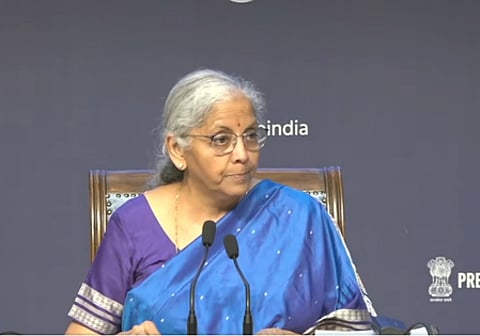

In a landmark move, the GST Council, chaired by Finance Minister Nirmala Sitharaman, on Wednesday rationalised the indirect tax structure, cutting the current four slabs down to two -- scrapping the 12 per cent and 28 per cent rates, while retaining the 5 per cent and 18 per cent slabs.
The changes in GST rates on services will be implemented from September 22.
The GST Council has reduced the tax rate on personal care items such as hair oil, shampoo, toothpaste, and dental floss from 18 per cent to 5 per cent.
It has increased the tax on cigars, cheroots, cigarillos, cigarettes, and other tobacco products, including substitutes, from 28 per cent to 40 per cent.
Moreover, the GST Council has slashed the tax rate on popular items like namkeens, bhujia, mixtures, chabena and other ready-to-eat packaged snacks. These items, which earlier attracted 12 per cent GST, will now fall under the 5 per cent slab, making them more affordable for consumers.
Meanwhile, the Council has raised the tax rate on all goods containing added sugar, sweeteners, or flavours, including aerated waters, from 28 per cent to a steep 40 per cent.
Prime Minister Narendra Modi had stated in his Independence Day speech that the Central government is proposing significant reforms in GST, focused on 3 pillars of structural reforms, rate rationalisation, and ease of living.
The key areas identified for next-generation reforms include rationalisation of tax rates to benefit all sections of society, especially the common man, women, students, middle class, and farmers.
The reforms will also seek to reduce classification-related disputes, correct the inverted duty structures in specific sectors, ensure greater rate stability, and further enhance ease of doing business.
GST reforms would strengthen key economic sectors, stimulate economic activity, and enable sectoral expansion, PM Modi said.
IANS